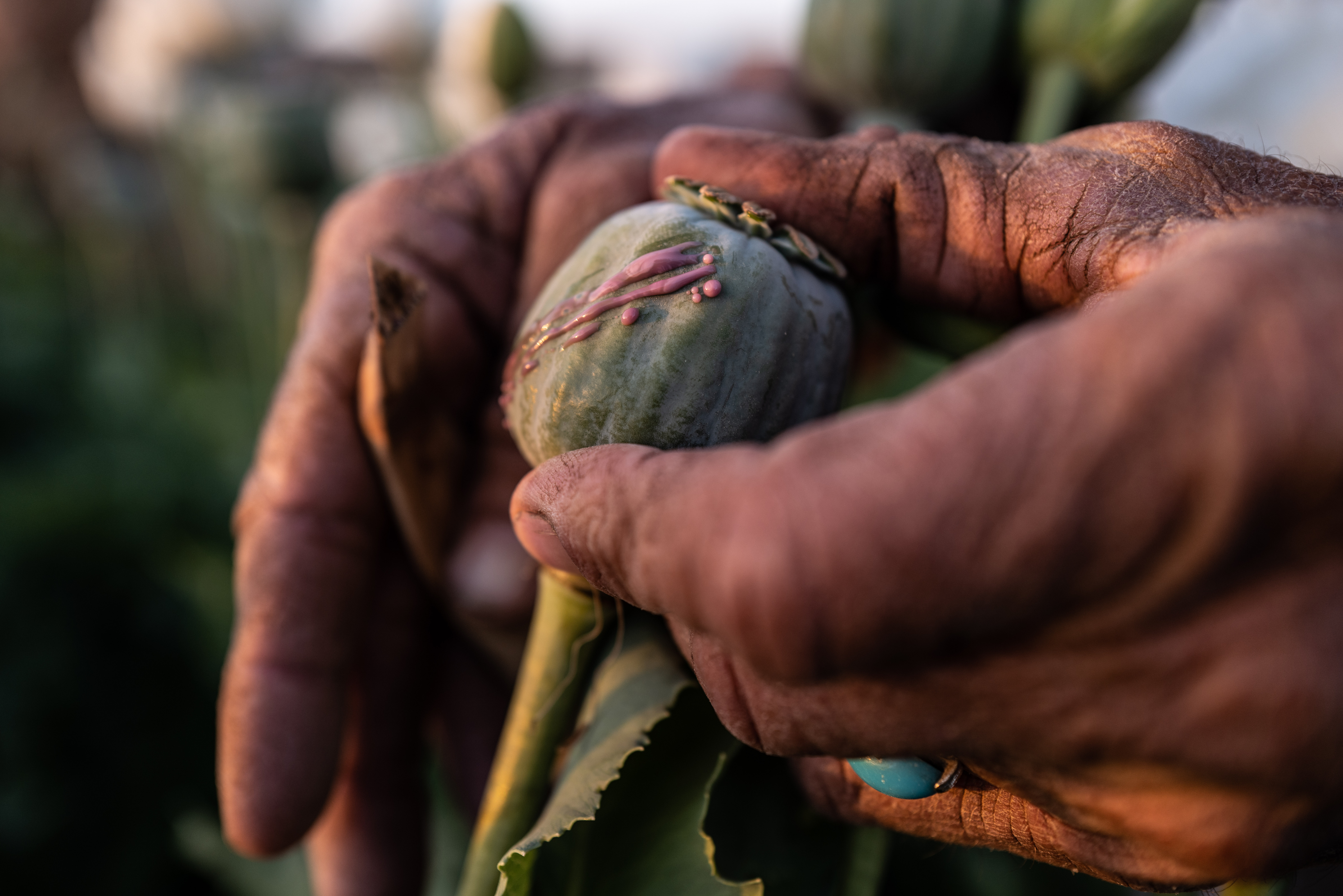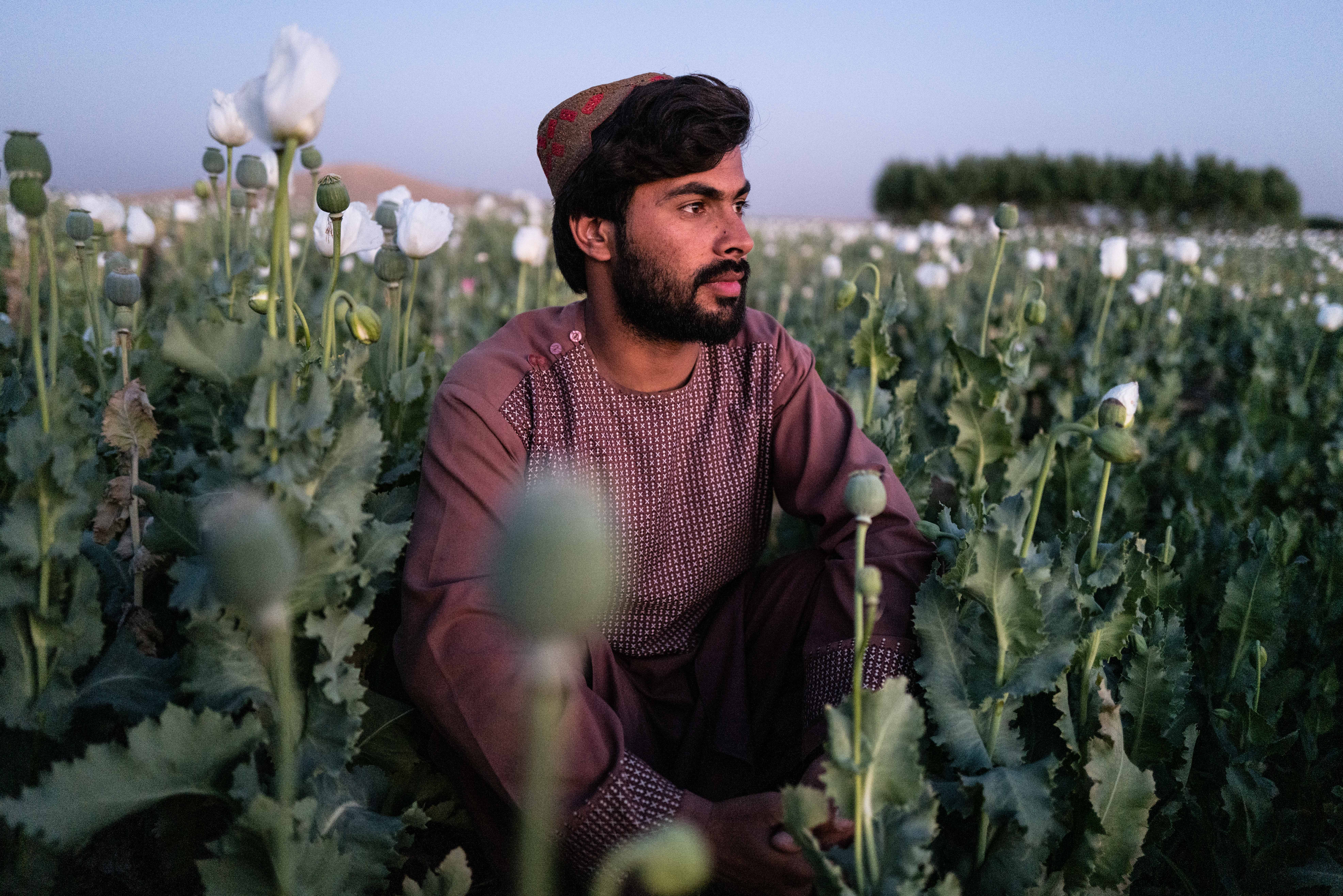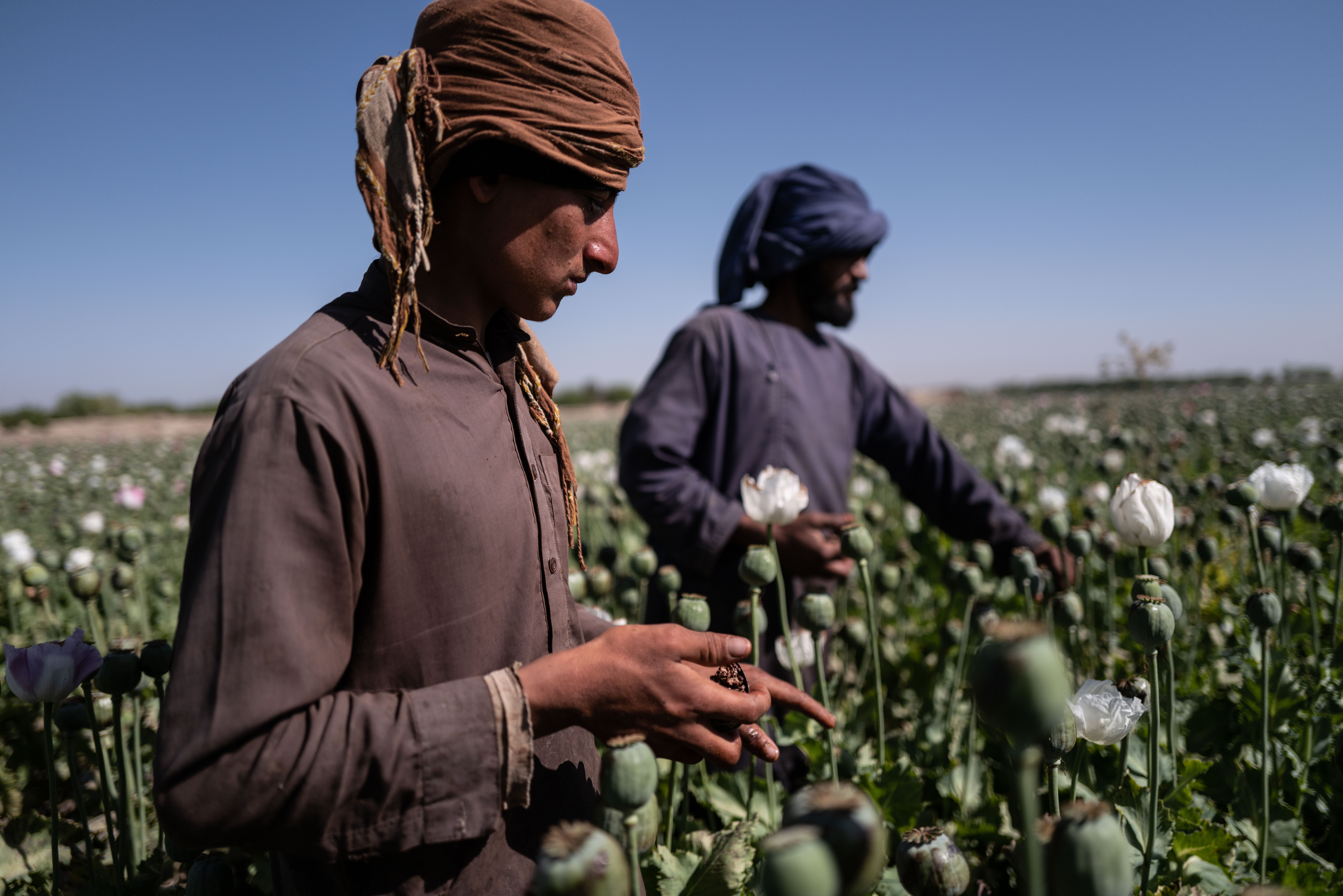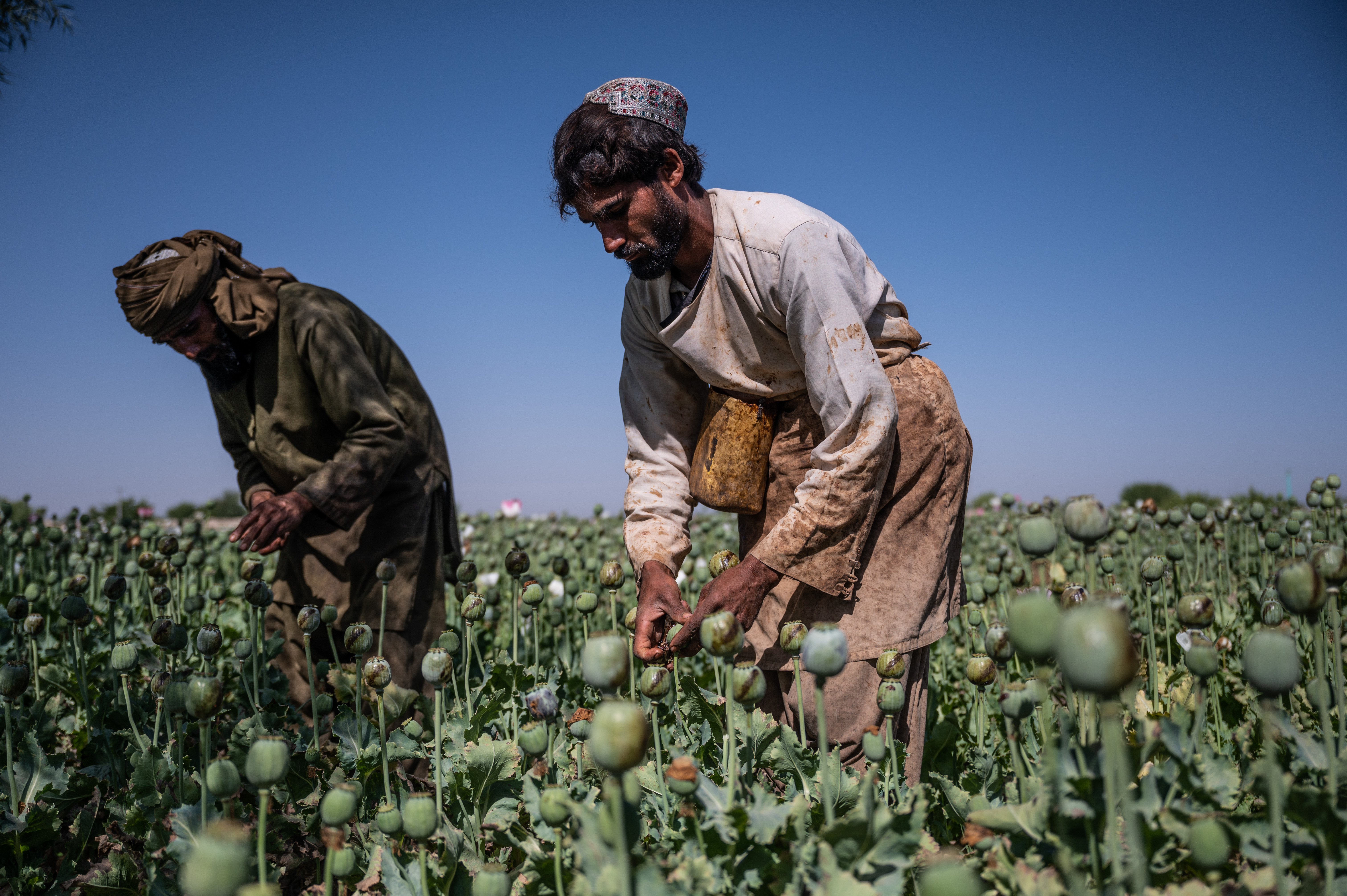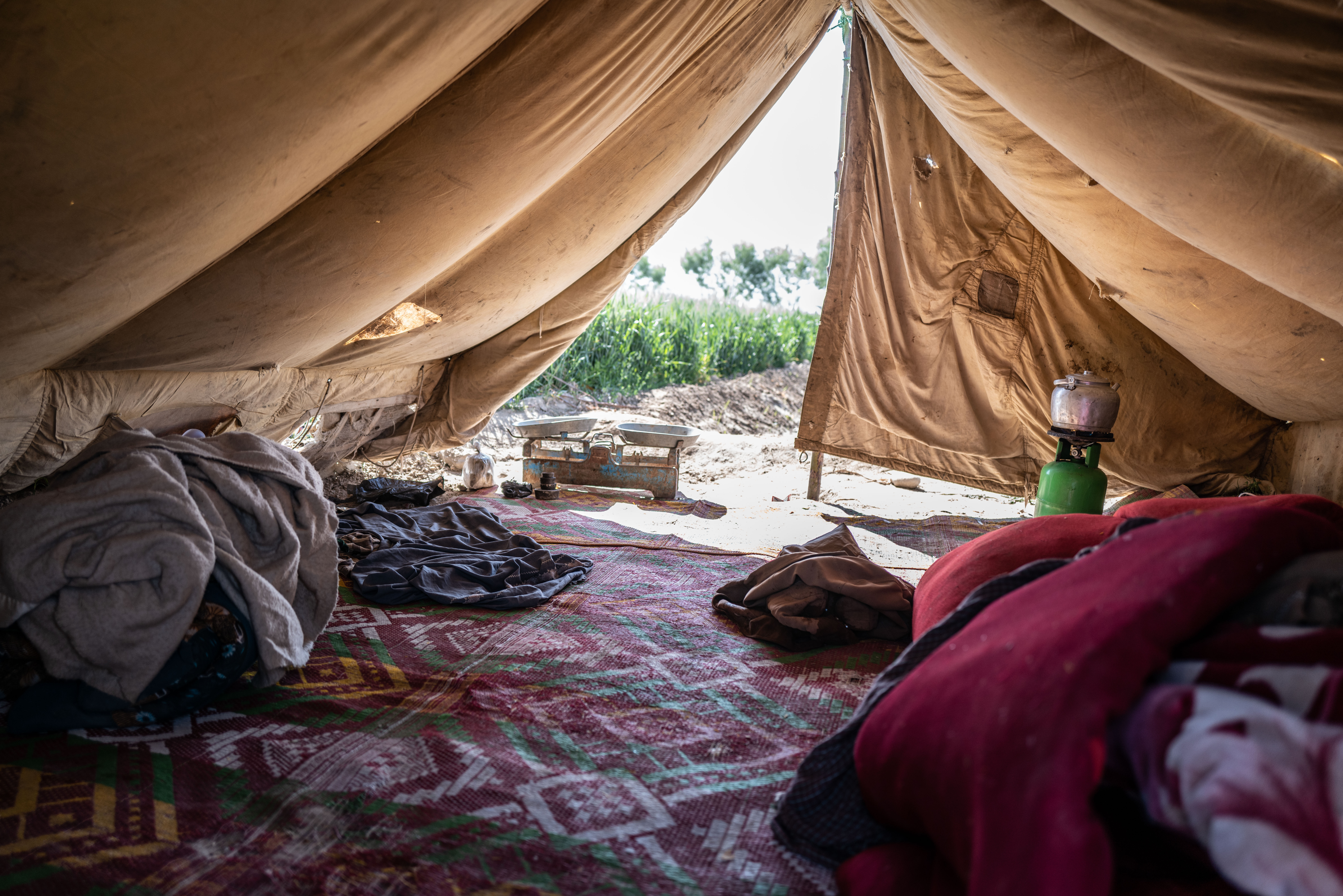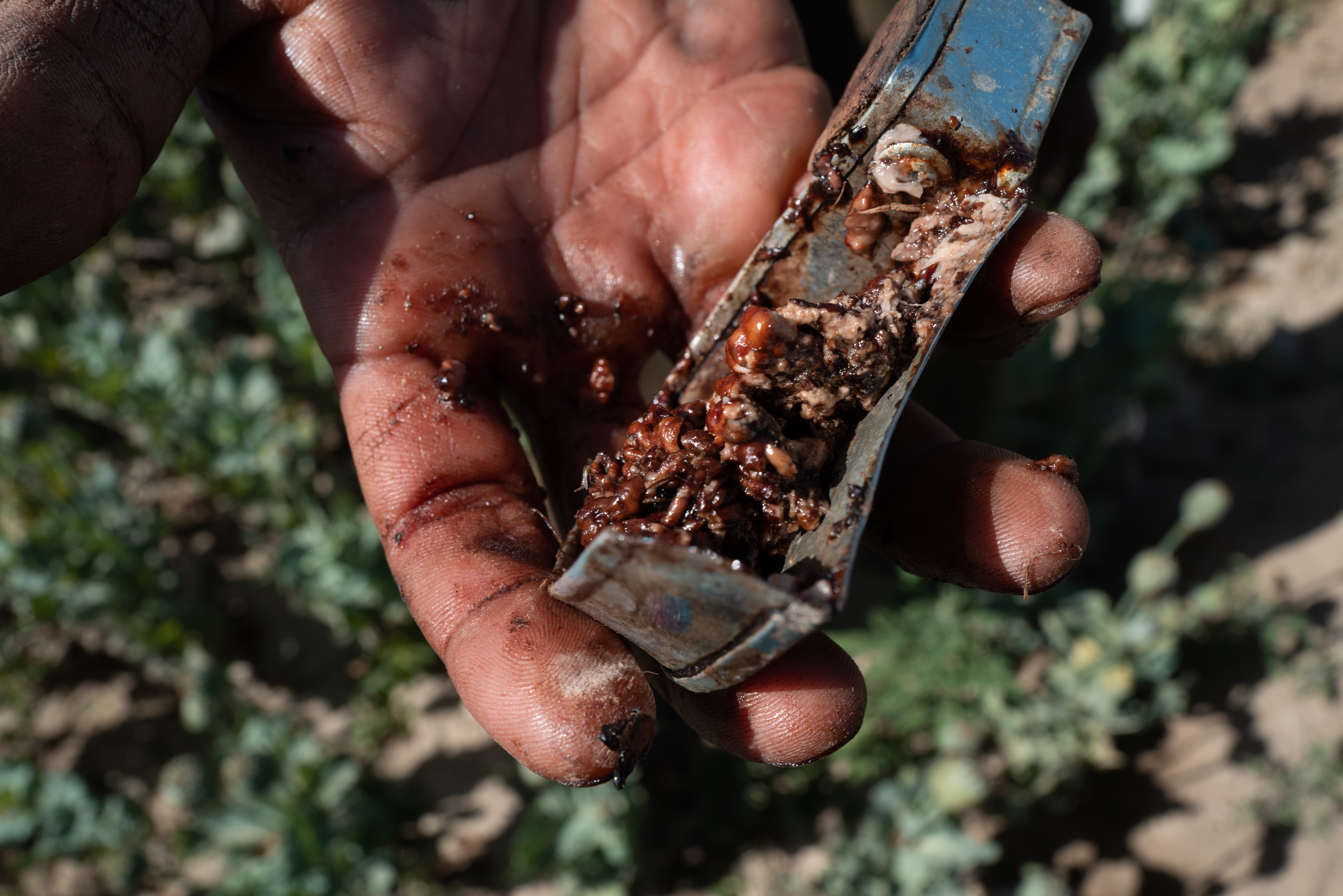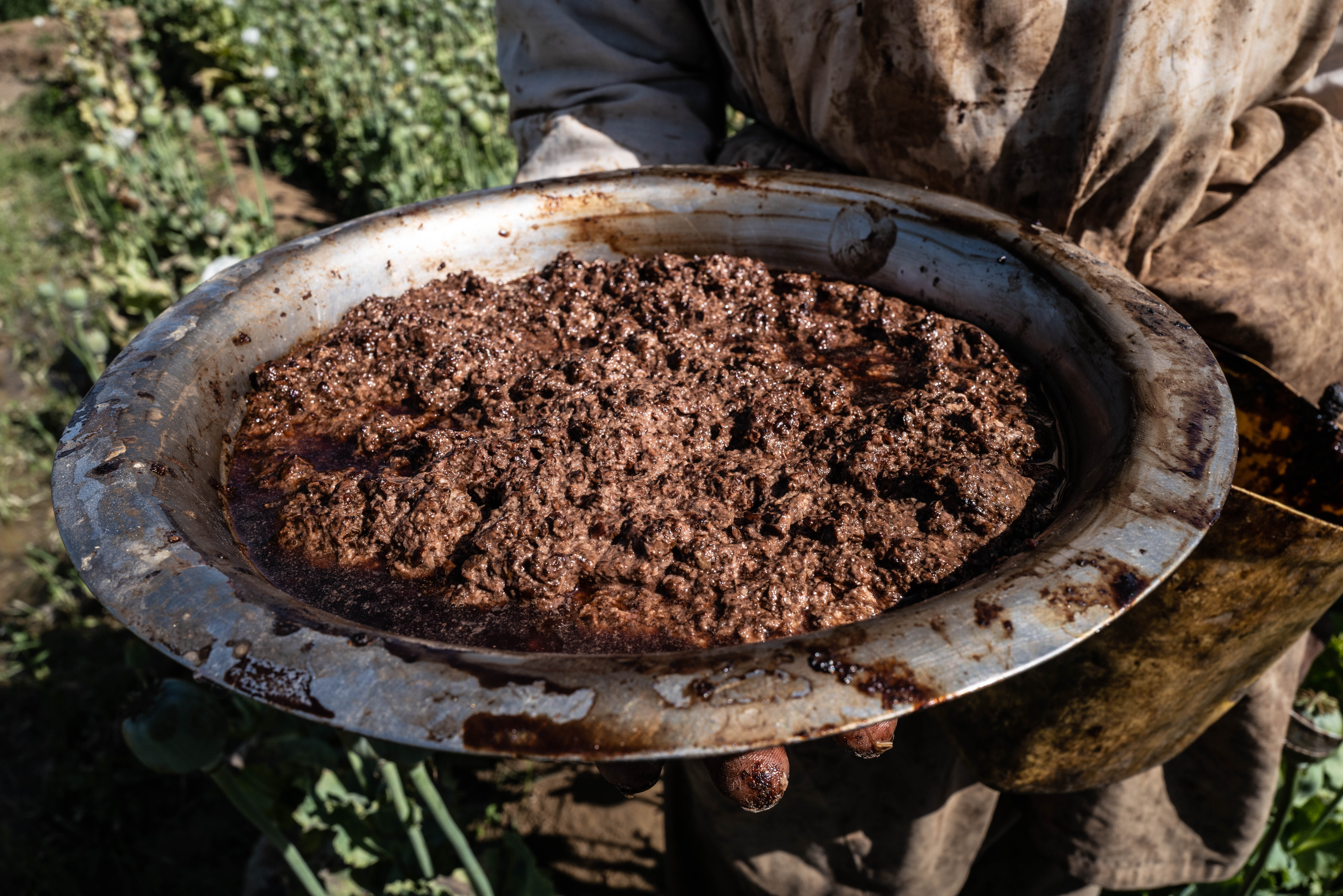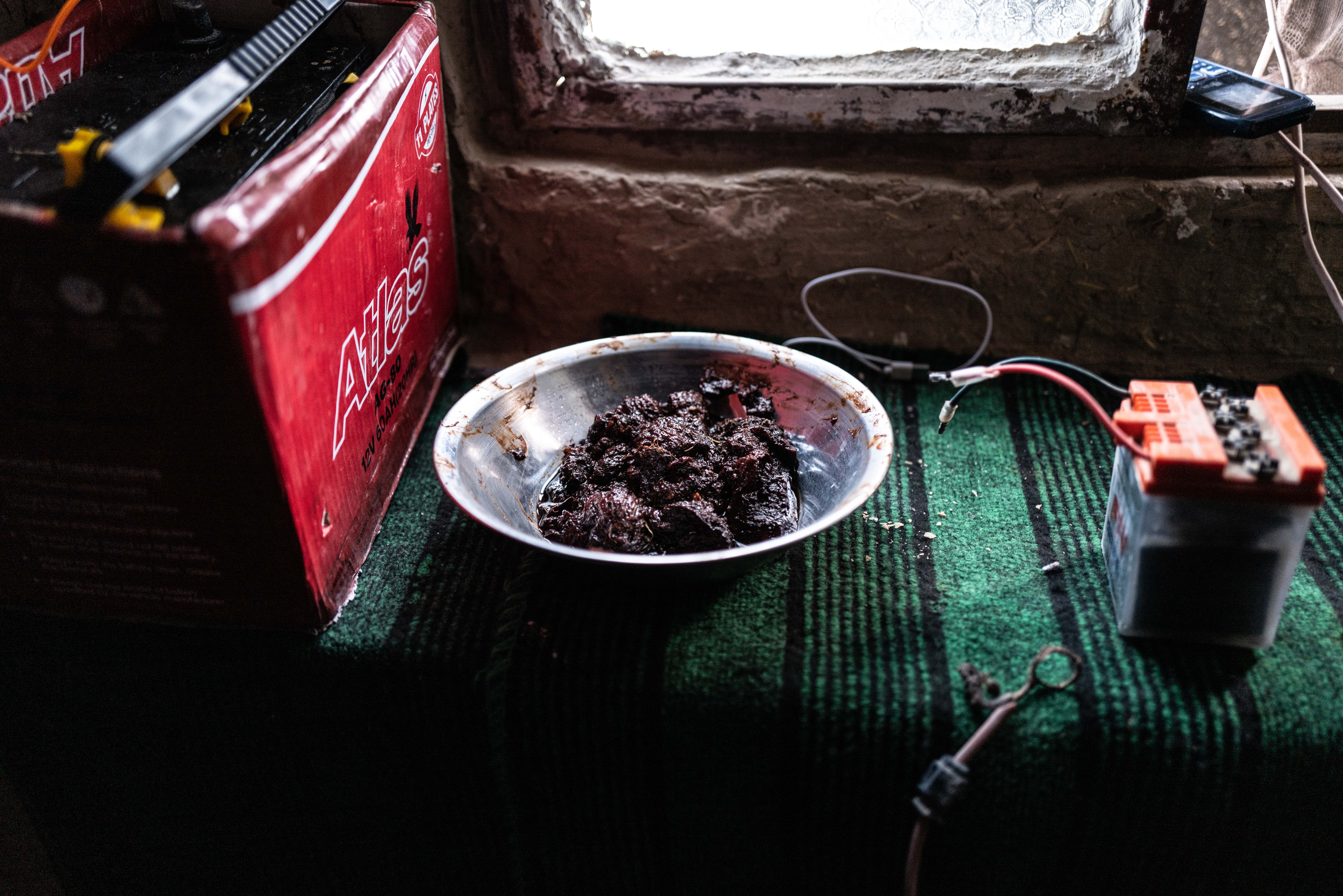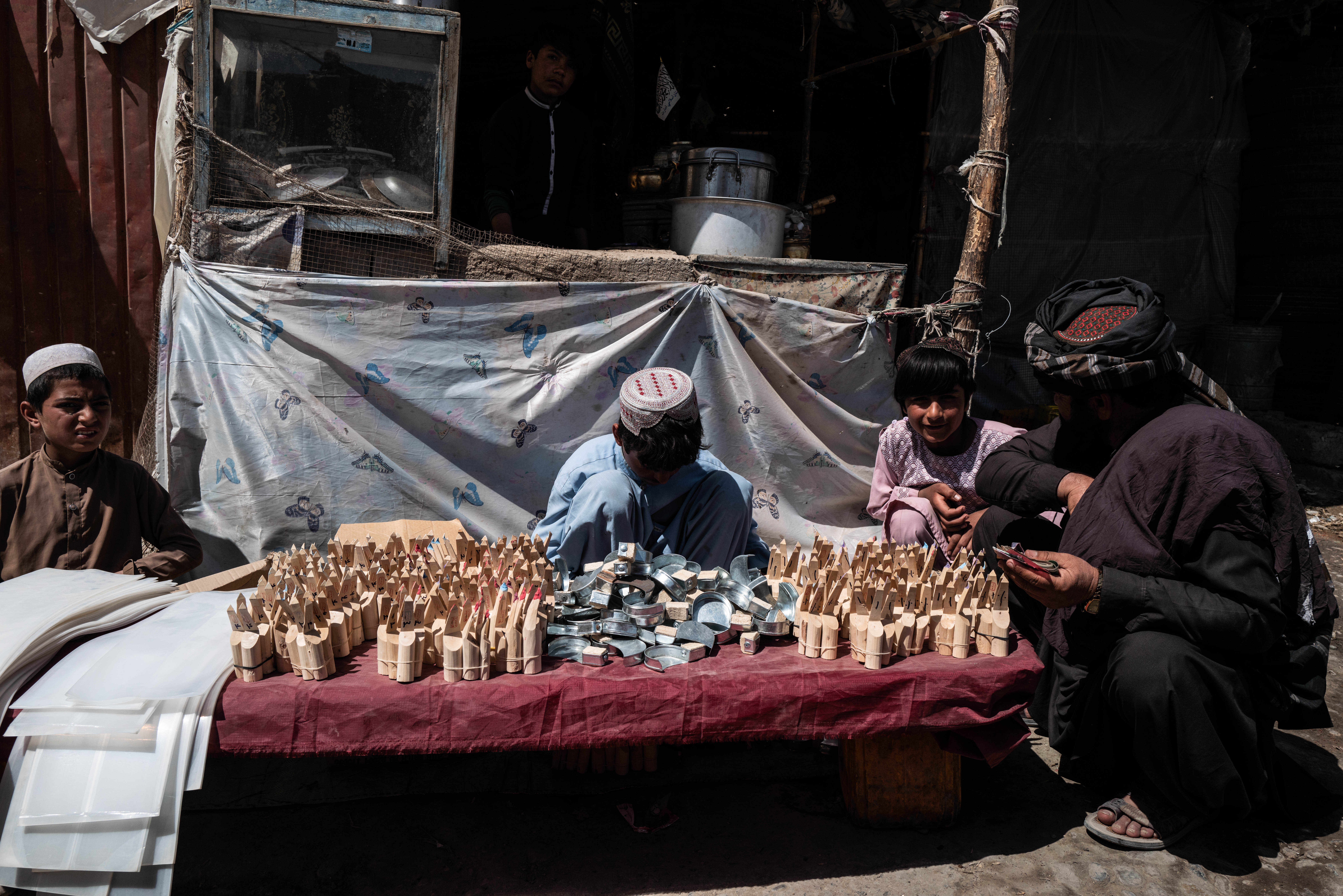Amazing Photos of the Taliban’s Poppy Harvest
April 22, 2022HELMAND, Afghanistan – Two days before the Taliban announced their country-wide ban on poppy cultivation, Jumah Gul was out in his small poppy field in Helmand, deftly moving from plant to plant, fingers stained with dark purple opium sap. 40-year-old Gul and four young workers worked quickly, scoring the bulbs of the poppies with small knives so that the sap could be harvested the following morning. “I’d much prefer to open a small fruit shop in the city,” he told VICE World News. “But right now, this is my only option.”
The Taliban announced a ban on opium production on April 3, but in Afghanistan’s southern Helmand province it is clear the edict has come too late to prevent the first wave of poppies from being cultivated and turned into opium.
For over two decades, Afghanistan has been the world’s largest producer and exporter of opium. The purple, red, and white poppy fields of southern Afghanistan’s Helmand Province are by now the stuff of legend. As the Taliban battled against the former western-backed Islamic Republic government, the sale of opium and heroin provided the group with a consistent and vital source of income.
In 2021, a report by the United Nations Office on Drugs and Crime (UNODC) estimated that Afghanistan produced 6,800 tons of opium in the 2021 season—enough to produce roughly 320 tons of pure heroin. The gross output of the Afghan illicit opiate economy in the same year was estimated to be $1.8 - $2.7 billion.
Although narcotics trafficking was banned under the first Taliban government in the late 1990’s, the group did not issue any official ban when they took power in August of 2021. Some observers speculated that a ban would materialize after the first 2022 harvest was in full swing, allowing the Taliban to claim that they were curbing drug production, while still benefiting from the sale and taxation of poppy that had already been harvested.
As the economy continued its nosedive towards the end of 2021, Afghan farmers started planting poppy on an unprecedented scale, hoping that the revenues from the lucrative cash crop could provide some much-needed financial relief for them and their families. Farmers cut down orchards of pomegranate trees and passed over their usual crops of wheat and corn in favor of poppy.
The fields began to grow, and the Taliban was silent.
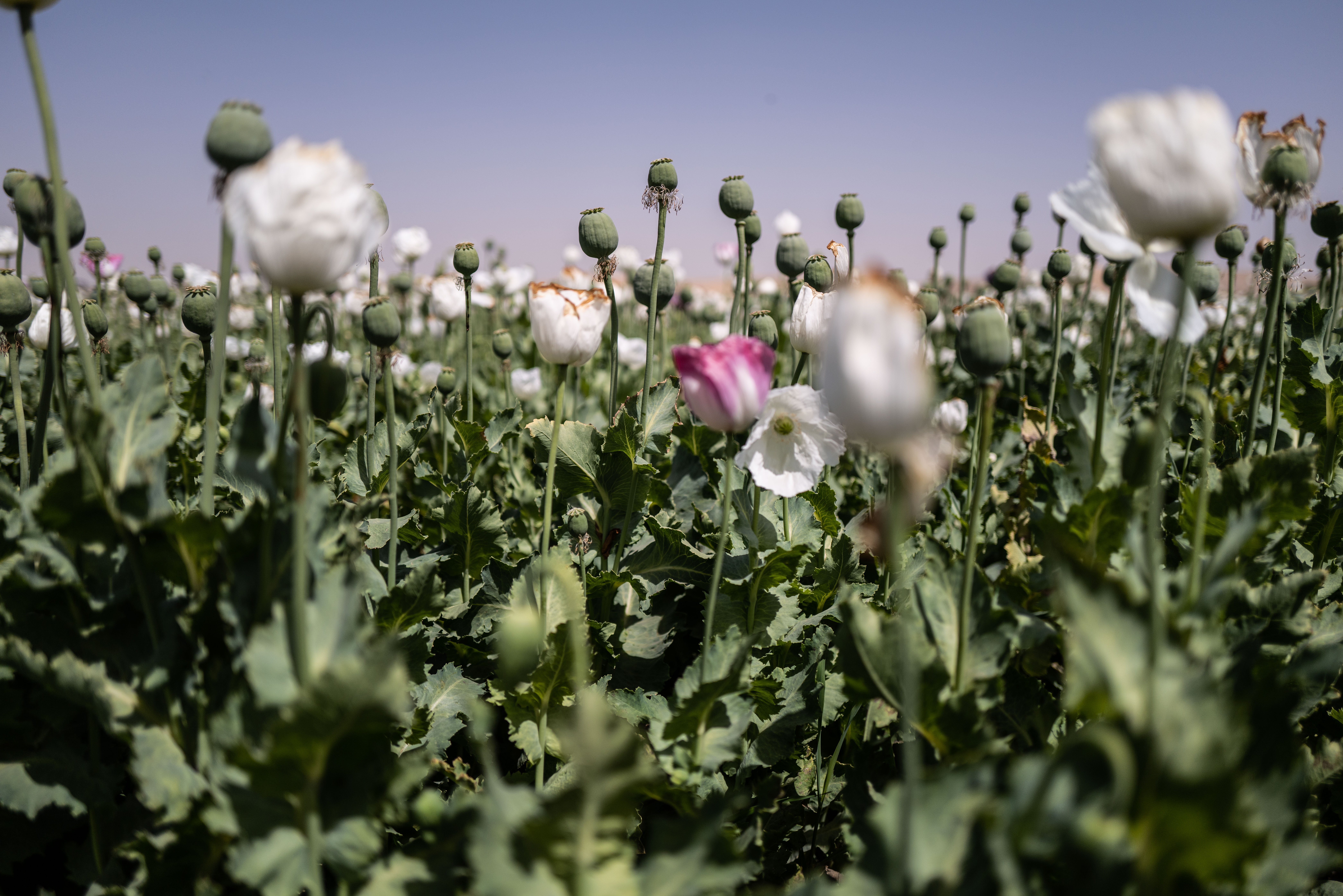
In the final week of March, the poppy harvest began in earnest. Itinerant laborers flocked to Helmand in droves, and it began to look like the Taliban might not address the issue of drug production at all.
Mohibullah, 54, travelled to Helmand from Ghazni Province in eastern Afghanistan, desperate for work. “There is no water in my home district, and no jobs on offer,” he said. “I have a family of nine, and this work is the only way I can provide for them right now. I’m out of options.”
Brothers Mahmadullah, 22, and Esmatullah, 32, own a small plot of land outside of Lashkar Gah, now full of purple and white poppies. “Lots of farmers who were growing other crops in past years switched to poppy this season, because the Taliban hadn’t issued any ban at planting time,” Mahmadullah told VICE World News last month. He said that in growing seasons under the previous Afghan government, the Taliban collected a tax from each farmer in the area, equivalent to about 2kg of opium per half acre of land.
When VICE World News spoke to a member of the Taliban before the ban he revealed that even local Taliban commanders had encouraged their fighters—most of whom don’t collect any regular salary— to work in the poppy fields to supplement their incomes.
Atiquallah is 24, and a member of the Taliban. He told VICE World News he’s worked in the poppy fields for the past five growing seasons. “Some of my family went to Iran to work this year. There’s no good market for wheat or other crops here now, so everyone has turned to opium.” He said that he too would prefer other work if it was available. “If the international community funds some other industries in Afghanistan, we’ll work in those instead, but right now we don’t have any other option.”
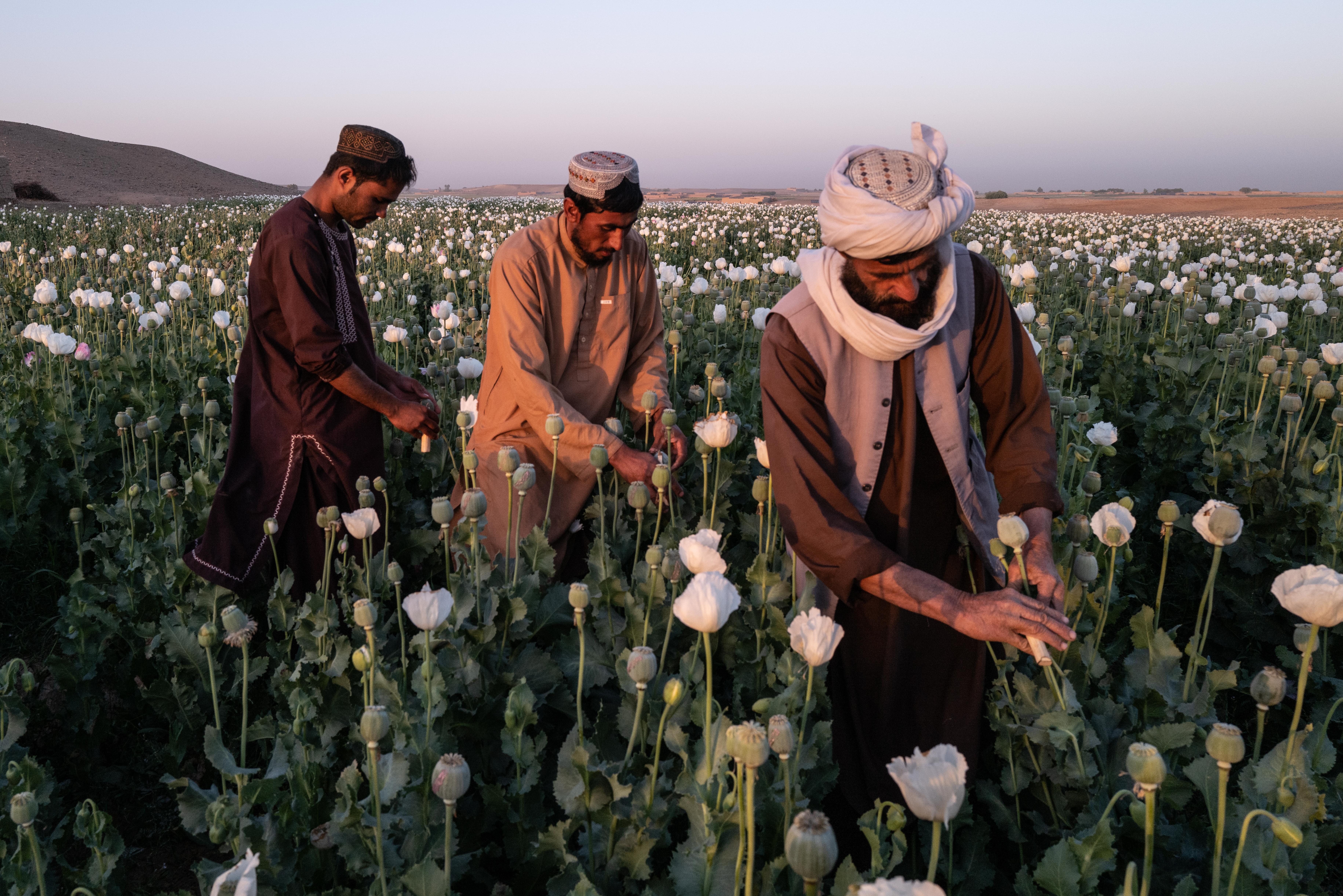
Early this month, the ban finally arrived. Taliban spokesman Zabiullah Mujahid issued what seemed like an unequivocal statement on his Twitter account. “All Afghans are informed that from now on, cultivation of poppy is strictly prohibited across the country. Usage, transportation, trade, export, and import of all narcotics… including drug manufacturing factories are strictly banned.”
It seemed to be what the international community had asked for, and some greeted the announcement with cautious optimism.
But since it was “banned,” the sap has become more valuable than ever.
Just a few days after the ban was issued, the price of raw opium more than doubled, peaking at nearly $230 per kilo. Although the price subsequently fell again, it remains significantly higher than pre-ban, meaning more profits for farmers, and more potential tax revenue for the Taliban.
On paper, the ban signals to the international community that the Taliban is willing to play ball in an important policy area, potentially laying the groundwork for increases in foreign aid.
However, in practice, the ban serves primarily to drive up opium prices. While higher prices are a godsend for struggling local farmers and laborers, they also promise increased tax revenue for the Taliban.
But just a few days after the ban, Jumah Gul is back at work, and the metal cooking bowl he uses to store the opium harvested from his field is looking full.
“Look around,” he said. “You can see that nothing has stopped. People are still in the fields; you can still buy and sell opium in the bazaar. If there are no other options, what can we do?”
